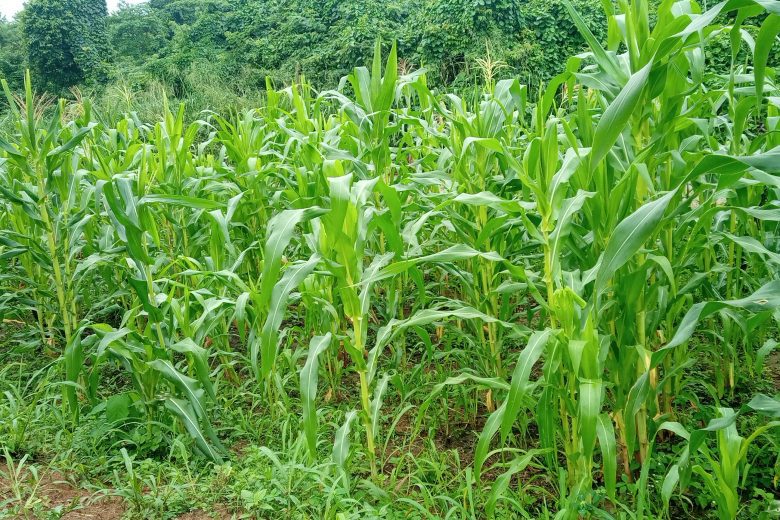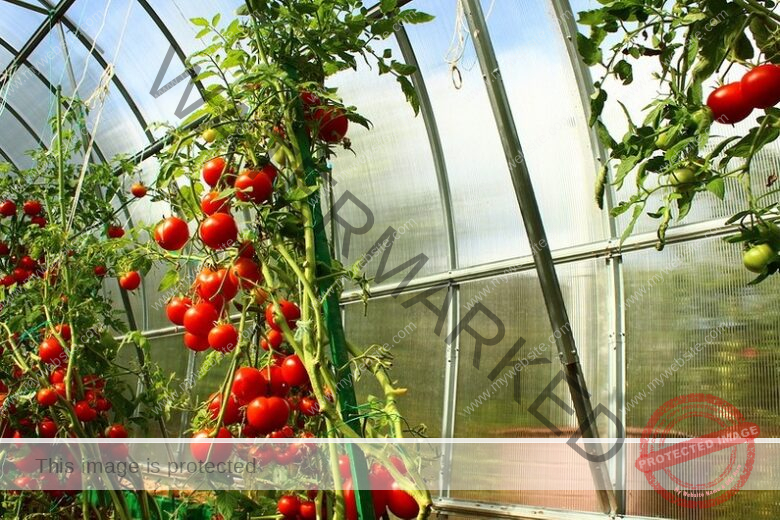The agricultural sector holds a pivotal role in Kenya’s economy, making a substantial contribution of around 33 percent to the country’s Gross Domestic Product (GDP) according to USAID Kenya, “Agriculture, Food, and Water Security. This sector serves as a major employer, engaging over 40 percent of the total population and a significant 70 percent of the rural inhabitants.
Now if you are planning to go into this area to start making money for yourself or just to feed your immediate family, In this guide, I have made a simple to follow step by step guide you need and how to get started immediately.
But first, to start a farming business in Kenya, what you need is a source of funds, information on the type of farming you’re going into, land to start your farm, and manual labor to start with.
How To Start a Farming Business In Kenya Step By Step
If you are looking into getting to know the intricacies and information on how to farm, and what to farm, here below information are the ways you can start farming in Kenya;
Step 1: Select Farming Area of Interest
Agriculture is a large and broad spectrum industry that gives you an array of fields to choose from, ranging from animal husbandry to crop cultivation, and from these two large areas, we have large subfields you can go into.
Some of these range from mere cultivation of different crops to rearing of different livestock, to majoring in Agrotech areas which involves getting capital for farmers to start up, getting to produce agricultural equipment to make farming easy, and a lot more are various options you can choose from, but as you read on, I will write on how to choose area of specialization.

As previously stated, there are various types of farming, the most common of which are livestock farming and crop farming. You must determine your area of interest before beginning a farm. This will play a crucial role in determining the information you require, how to proceed with your Farming guide and more.
Types of Farming Business In Kenya
There are two major categories of farming they are Animal Husbandry and plant cultivation.
Animal Husbandry:
This entails rearing and raising all manner of animals including chickens, goats, cattle, fish, pigs, and many more. so, if you are thinking about what areas to start with, here are a few I have chosen, I wrote about their cons and pros:
Poultry farming involves raising chickens, ducks, or other birds for their meat and eggs. It’s a versatile business that can be pursued on a small or large scale. Chickens are typically raised for meat (broilers) or eggs (layers). Ducks are also raised for meat and eggs. Poultry farming offers a relatively quick turnover, and there’s consistent demand for poultry products.
Pros:
- Relatively low startup costs and quick turnover.
- High demand for eggs and poultry meat.
- Can be managed on a small scale.
Cons:
-
- Disease management is crucial.
- Initial investment in housing and equipment.
- Seasonal fluctuations in demand.
2. Aquaculture (Fish Farming):
Aquaculture, or fish farming, is the practice of cultivating fish in controlled environments such as ponds, tanks, or even cages in water bodies. It’s a sustainable way to meet the growing demand for fish protein. Different fish species like tilapia, catfish, and trout can be raised based on market preferences and regional conditions.
Pros:
- Growing demand for fish protein.
- Efficient space utilization with high stocking densities.
- Various species options are based on market preferences.
Cons:
-
- Water quality maintenance is vital.
- Requires knowledge of fish husbandry.
- Initial investment in pond/tank setup.
3. Beekeeping (Apiculture):
Beekeeping involves raising and caring for bee colonies to harvest products like honey, beeswax, and royal jelly. Bees also play a vital role in pollinating crops, making beekeeping essential for agriculture.
Beekeeping can be done on a small scale, making it accessible to hobbyists and those with limited space. To learn more about how to start a beekeeping business in Kenya, you can read more in the guide I have provided in this link.
Pros:
- Low space requirement.
- Honey and other bee products have a steady market.
- Beneficial for pollination and ecosystem health.
Cons:
-
- Learning curve for beekeeping techniques.
- Bee health management is crucial.
- Vulnerability to pests and diseases.
4. Goat Farming:
Goat farming is the practice of raising goats for meat (chevon or goat meat) and other products like milk and fiber. Goats are hardy animals that can adapt to various environments. They are particularly valuable in areas with limited grazing resources. Goat farming offers the potential for profit through the sale of meat and other goat-derived products. You can follow this guide I have provided to get started with starting a goat farming business in Kenya.
Pros:
- Adaptability to diverse environments.
- Demand for goat meat (chevon) is rising.
- Efficient use of space compared to larger livestock.
Cons:
-
- Need for proper grazing and housing facilities.
- Health management, particularly in kidding season.
- Market competition and pricing fluctuations.
5. Dog Breeding:
Dog breeding involves selectively mating dogs to produce specific qualities and characteristics in the offspring. Responsible dog breeding focuses on maintaining breed standards, health, and temperament.
This business requires a deep understanding of canine genetics, breed characteristics, and ethical considerations. Dog breeding can be financially rewarding but necessitates thorough knowledge and a commitment to animal welfare.
Pros:
- High demand for purebred and designer dogs.
- Potential for building a reputable breeding program.
- Emotional rewards for working with animals.
Cons:
-
-
- Ethical considerations and responsible breeding practices.
- Initial investment in breeding dogs and facilities.
- Breeding-related health risks for both dogs and puppies.
-
Other areas include
6. Snail farming: You can read about how to start snail farming in Kenya here
7. Ostrich Farming: To start raising ostrich, here is a detailed step-by-step guide for beginners
You can venture into an ostrich farm in Kenya, this is sometimes not seen as poultry farming because Ostrich is reared separately.
8. Pig Farming: To start raising pigs in Kenya, you can read more about this here
6. Cattle Farming: Here is a detailed guide on how to start Cattle farming in Kenya
7. Black soldier ant farming
8. Cricket farming: Here is information on how to start cricket farming in Kenya
9. Grasscutter farming: If you are planning on grasscutter farming business in Kenya, here is a step-by-step guide to get started
Before starting any animal-related business, thorough research, planning, and understanding of industry regulations are crucial. Each business has its unique challenges and potential for profitability. It’s important to consider factors such as investment costs, required expertise, market demand, and ethical considerations to make an informed decision.
Read Also: How To Start Bee Farming [Step By Step Guide]
Plant Cultivation:
This simply involves planting and caring for plants of all types which includes, corn, millet, soybeans, palm fruit, cocoa, and many others. Some of the lucrative crops you can start farming in Kenya include the following:
- Avocado: Avocado farming has gained popularity in Kenya due to its high demand in local and international markets. Avocado trees thrive in diverse climatic conditions and are known for their nutritious fruit. Here is a guide on how to start Avocado farming in Kenya and how to get started as a beginner.Pros:
- Growing global demand for avocados.
- Favorable climate in various regions of Kenya.
- Long harvesting period and consistent income potential.
Cons:
- Initial investment in tree planting and maintenance.
- Proper irrigation and disease management are crucial.
- Market fluctuations affect prices.
- Tea: Tea is a major cash crop in Kenya, with the country being one of the largest tea exporters globally. The highlands of Kenya provide ideal conditions for tea cultivation.Pros:
- Well-established industry with access to markets.
- Regular income through periodic plucking.
- Opportunity to join tea cooperatives.
Cons:
- Requires careful soil management and pruning.
- Fluctuating global tea prices.
- Dependence on weather conditions.
- Horticultural Crops (e.g., French Beans, Snow Peas): Kenya is a prominent exporter of fresh vegetables like French beans and snow peas to international markets. These horticultural crops benefit from the country’s favorable climate and demand for out-of-season produce.Pros:
- High-value crops with good export potential.
- Short maturity period for quick returns.
- Growing demand for fresh produce globally.
Cons:
- Stringent quality standards for export markets.
- Need for proper pest and disease management.
- Fluctuations in market demand and prices.
- Mango: Mangoes are widely grown in Kenya and are appreciated for their delicious taste and nutritional value. The country’s diverse agro-ecological zones allow for year-round mango cultivation.Pros:
- High demand for both local consumption and export.
- Varied mango varieties with different harvesting seasons.
- Potential for value-added products like dried mangoes.
Cons:
- Periodic fruit-bearing, requiring seasonal income planning.
- Pruning and disease management are essential.
- Competition from other mango-producing countries.
- Macadamia Nuts: Macadamia nuts have become a profitable crop in Kenya due to their growing demand in both local and international markets. Macadamia trees thrive in various regions with suitable climates.Pros:
- High-value nuts with increasing global demand.
- Trees have a long productive lifespan.
- Opportunities for value addition (e.g., nut processing).
Cons:
- Initial investment in tree planting and care.
- Takes several years for the trees to mature.
- Vulnerability to pests and weather fluctuations.
Other areas you can include are:
Tomatoes Farming: You can read this link to read more on Tomatoes Farming in Kenya
Pepper Farming: You can follow this link to read more on how to start Pepper Farming in Kenya
Beans Farming: You can follow this link to read more information on how to start bean farming in Kenya
When considering starting a crop farming business, factors such as soil suitability, climate conditions, market demand, and access to resources should be carefully evaluated. Each crop has its own set of challenges and potential for profitability. Thorough research and planning are essential for success in the chosen agricultural venture.
You can also read this guide on 12 Farming Tips For Beginners [Practices & Guide]
Step 2: Raise Fund To Start Your Farming Business
Businesses require money to expand, and regardless of the type of business, you will always need money to keep it operating. Either to purchase stocks, pay staff, repair the electrical system, or a multitude of other activities.
The same applies to your farming. You will need money to purchase land, agricultural inputs such as seeds, and farm equipment, among other expenses. You can obtain funding for your agricultural enterprise through grants, family assistance, personal savings, or bank loans.
Step 3: Buy Farmland
After you have raised money for your Farming operations, and gotten the area that interests you the most, as well as the needed knowledge the following item is to procure a farm space where you may start your farm.
There are many factors to consider when contemplating the purchase of farmland. Check the soil’s quality and accessibility to major roads. Is it closer to the market for your product? And many others. Also, if you are going for animal husbandry, you must site your farm away from predators and also somewhere easier for you to monitor.
Step 4: Clear The Farmland
The next thing on your business guide or plan when starting a farm is to clear the forested area of the farmland you just procure. this is majorly known as land preparation. After you are done clearing, you can proceed to heap or make ridges on the farm and even raise houses for your animal if you are planning animal husbandry.
If you are planning on livestock farming, there are various procedures to raise and build your livestock houses, I have talked about poultry house plans here and pig pens here
Step 5: Start Planting/Buy Livestock To Raise
The next thing is to start planting your desired crop on your farmland or rear your desired animals. While starting to plant or to rear the animal, I do recommend starting small especially If you are a beginner, ensure you do not start on a large scale to avoid catastrophic shortage.
It is good we learn with small specimens, while we detail information, cost, and our observations down in the process of testing with the small crops or animals. This will boost your boldness in your next planting or raising season because you have tested and have the basic information required to start out.
The best way to learn anything in life is by doing it, not just by doing, but by taking note of everything you observe, start with say 50 birds, or 5 goats, or a plot for crops, observe it, then do this for at least two to three times, this will give you enough insight and data needed for commercial production.
How much do I need to start farming in Kenya?
To start a farming business in Kenya, you will need at least Ksh 3,000 to Ksh 25,000 on a medium scale or more than if you are going on a larger scale way.
Which is the most profitable farming in Kenya?
Following are the most profitable crops to grow in Kenya, The following are the most demanded crops in Kenya, mushrooms, onions, passion fruit, strawberries, and pawpaw.
Can Farming Make You Rich in Kenya?
Yes, farming can make you rich and even make you a millionaire in Kenya if you venture into it on a large scale way.
Is chicken farming profitable in Kenya?
Yes, the chicken or poultry business is one of the most profitable farming businesses to venture into in Kenya. This is due to the high demand for poultry products.
Which crops are in high demand in Kenya?
Following are the most demanded crops in Kenya, mushrooms, onions, passion fruit, strawberries, and pawpaw.
Further Read:
12 Poultry Farming Tips For Beginners [Success Guide]
12 Factors To Consider To Start A Successful Piggery Farm
12 Requirements To Start A Poultry Farming Business
Conclusion
Kenya is one of the African countries where farming is one of the predominant occupations, so as a beginner, you can harness this opportunity to grow crops either for your immediate consumption or on a large scale, any way you choose, the land is ready for you to start tilling and to harvest the best following all the guides we have offer you in this place.
If you have further questions or clarifications, we are always around here, drop your comment below, and I will read and I will get back to you with a practical solution to your difficulties. Till we meet again, keep tilling the ground to reap the best!





4 Replies to “[Beginner’s Guide] How to Start Farming In Kenya”